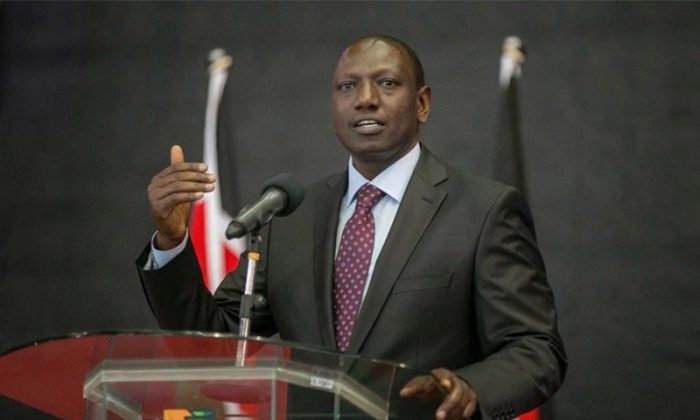President William Ruto appeared to contradict his own directive on Sunday regarding harambees involving public officers and civil servants. During a church service at Ndogino AIPCA Church in Ndaragua Constituency, Nyandarua, the President pledged to fund the completion of the church’s construction. He instructed Ndaragua MP George Gachagua to collaborate with the clergy to determine the required amount for the project.
“I understand that this church is under construction and incomplete. I will support it to completion. Mr. Gachagua, work with the church leadership to see how much is needed so that I can write a cheque,” President Ruto said, receiving applause from the congregation.
Impact on Church Development Projects
President Ruto acknowledged that the ban on harambees would affect church development projects. He emphasized that the law, which he directed the Attorney General to formulate, should undergo public participation. Despite the service being held in tents, neither the presiding Bishop David Mundia nor any other speakers mentioned a stalled church building during the service.
In his recent public addresses, the President has consistently stated that state officers and civil servants are prohibited from participating in harambees. “No state officer and public servant shall participate in public contributions henceforth. The Attorney General is hereby directed to prepare and submit legislation to this effect and develop mechanisms for structured and transparent contributions for public, charitable, and philanthropic purposes,” Dr. Ruto said last Friday.
Political Reactions and Criticism
Githunguri MP Gathoni wa Muchomba criticized the President’s offer as doublespeak, agreeing that church harambees motivate leaders to engage in corruption. She noted that she skipped a church event in her constituency to adhere to the presidential directive and her conscience. “We are not opposed to supporting the church, but let it not be publicized. If you want to support the church, buy the construction materials and silently have them delivered without blowing the trumpet,” she said.
Similar sentiments were echoed by Kirinyaga Woman Representative Njeri Maina, who argued that it is unjustifiable for politicians to contribute more than double their salaries and allowances to harambees. “Where do they get that money? It must be the proceeds of corruption. The harambees motivate more corruption as politicians believe they must bribe voters during the campaigns. That should not be the case,” Ms. Maina said in a recent media interview.
Defending the President
Nyandarua Woman Representative Faith Gitau defended the President, emphasizing that there was no harambee held at Ndogino AIPCA Church. “Unlike in normal harambees, the President did not disclose the amount he is donating because there was no harambee. Let us not read mischief or politicize a noble gesture from a generous man. President Ruto is a Christian, and his attachment to the church is not in dispute,” she said.
Ms. Gitau further explained that the President’s gesture was voluntary and not prompted by any invitation to a harambee. “That is his nature; he is generous, and we know his contributions are from the heart. We all know he is a serious farmer, and as the Head of State, he cannot be restricted to only attending his church. What is wrong with him paying tithe to any church where he attends Sunday service? He volunteered to support the church without an invitation to a harambee or anyone asking,” she added.
Balancing Support and Accountability
The debate highlights the complexity of balancing genuine support for community projects with maintaining transparency and accountability in public office. As the government formulates new regulations on public contributions, the discourse on ethical and effective philanthropy in Kenya continues.





